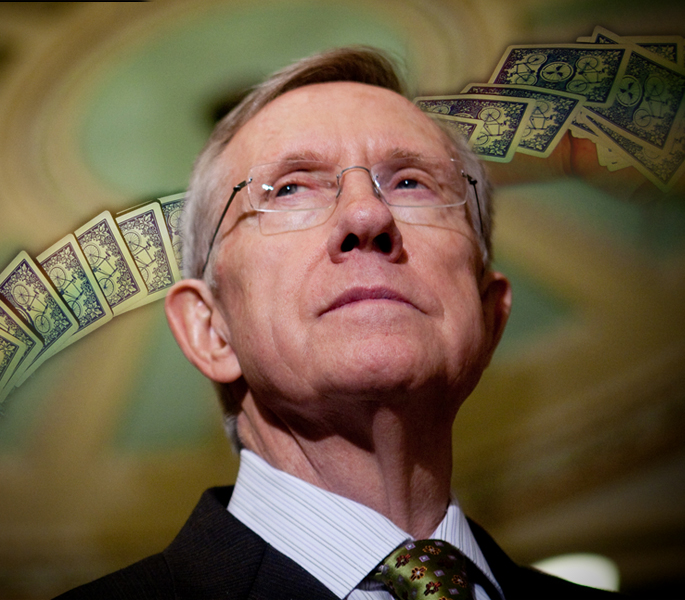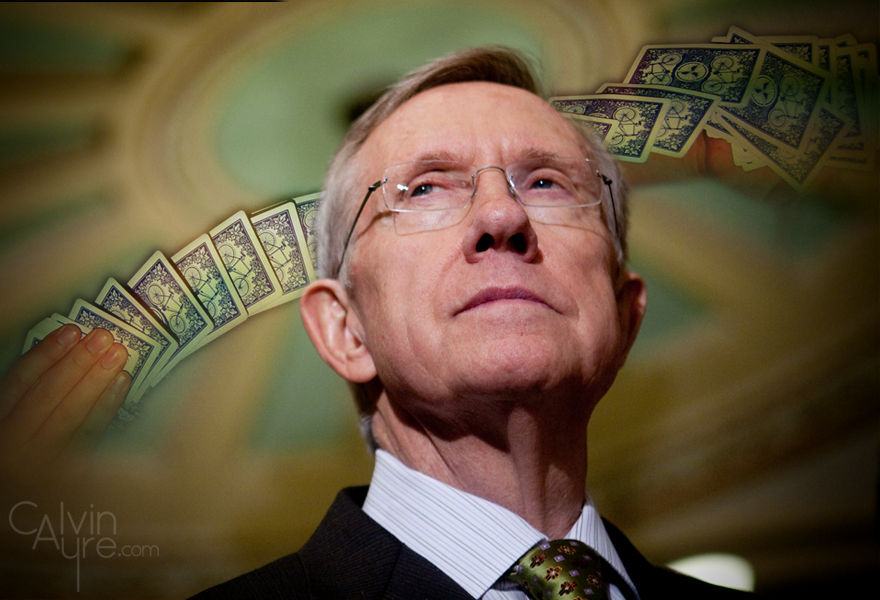The Internet Gambling Prohibition, Poker Consumer Protection and Strengthening UIGEA Act of 2012, introduced in the Senate by Senator Harry Reid of Nevada and Senator Jon Kyl of Arizona, proposes a vision of a slim, strictly regulated American online gambling market.
Among its provisions:
- The bill proposes the creation of an Office of Online Poker Oversight (OOPO), a new body that would be tasked with creating standards to protect against cheating, to keep minors from accessing sites, and to establish programs for problem gamblers. The office would appoint regulators to issue online poker licenses; these would likely include the Nevada Gaming Control Board, which has been overseeing the country’s first intrastate online poker licensing program.
- Institutes a 15-month waiting period after passage of the bill before opening up the American market.
- All 50 states would have to opt in to federal regulation by consent of their legislatures. Any state that doesn’t take up the issue will be assumed to have opted out. Indian tribes would only be allowed to operate online if their states opted in to federal regulation.
- Prohibits international participation in U.S. player pools.
- Licenses in the first two years will only be granted to land-based casino companies “of a certain size and type” or manufacturers of regulated gaming devices.
- Companies that operated in the U.S. following the passage of UIGEA would be prohibited from licensure for a minimum of five years.
- Licensed operators would pay a 16 percent monthly “online poker activity fee,” with 14 percent going to the states and Indian tribes and the other 2 percent going to the federal government. Any operator found in violation of OOPO guidelines or rules would risk fines of up to $750,000 and the loss of its license.
- Reverses the recent DOJ opinion that the 1961 Wire Act only applies to sports betting, by declaring all online gambling other than off-track horse betting and licensed online poker to be illegal. The penalties for offering anything other than horse-betting and poker are up to 10 years in prison, plus fines.
- Imposes new restrictions on online lotteries, allowing them to sell tickets for daily drawings online but not to develop new interactive, slot-machine-like games.
 The answer to this really depends on the class of player you’re talking about. For the more recreational players who were scared off after UIGEA – the kind of players who just want to play, details be damned – passage of this bill would probably be Poker Boom 2.0. Imagine seeing the new equivalent of all those old PartyPoker ads on TV, hawking real legal poker online during football games and reality shows, and you’re probably not too far off. There is one catch: this will only be the reality for people lucky enough to live in states where moralists don’t determine gambling policy. Everyone else will make sad faces while their friends on the two coasts get to check-raise each other silly.
The answer to this really depends on the class of player you’re talking about. For the more recreational players who were scared off after UIGEA – the kind of players who just want to play, details be damned – passage of this bill would probably be Poker Boom 2.0. Imagine seeing the new equivalent of all those old PartyPoker ads on TV, hawking real legal poker online during football games and reality shows, and you’re probably not too far off. There is one catch: this will only be the reality for people lucky enough to live in states where moralists don’t determine gambling policy. Everyone else will make sad faces while their friends on the two coasts get to check-raise each other silly.
For the pro players who left post-Black Friday, the forecast is hazier. The prospect of being able to play back home instead of as an international exile would probably be pretty tempting, but the uncertainty of rake structures, potential caps on stakes, and other bottom-line-impacting figures means there’s a likelihood that some pros would be better off staying abroad. Still, it’s conceivable that Americans could once again be living in America while earning their livings playing online poker.
What about Americans who like other kinds of gambling?
Unless they’re horse-racing junkies or lotto players who hate the inconvenience of going to gas station to buy their tickets, they’ll be disappointed. Trips to the casino will still be in order to get your all-night Pai Gow Poker fix.
Is it good for American gaming companies?
In a word, yes. It essentially hands over a ready-made online gambling market to a group of companies that until only recently were (at least in theory) vehemently opposed to online gambling. New revenue streams are always a good thing.
There is a caveat, though, and that’s the creation of a walled garden for the market. By not allowing international players to play against Americans online, the bill prevents American companies from taking advantage of emerging markets abroad. Still, the financial effects of a new poker boom would be welcome in the companies’ coffers.
What about international brick-and-mortar gaming companies?
They’ll be positioned two years behind the American companies, so they’ll be at a competitive disadvantage even if they can become licensed. If the American companies totally drop the ball when it comes to consumer satisfaction, late entry could be a good thing, but it’s still difficult (and potentially expensive) to make up ground when another company has a head start.
And online gaming companies who operated in the U.S. after UIGEA?
Nope. They’re screwed.
Of course, all of this hinges on the legislation actually making its way through all the requisite steps to becoming law. First, it would have to pass the Senate, where its co-author, Majority Leader Harry Reid, has fallen out with his state’s junior – the same senator he earlier tasked with gathering Republican votes to support it. This would have to either happen before Congress adjourns for election season or after the elections in a lame-duck session of Congress.
In addition, a companion bill (like Joe Barton’s identically named legislation) would have to pass the Republican-controlled House of Representatives in the same timeframe. Then the president would have to sign the bill into law, rather than choosing to veto. Of course, that’s a lot more likely if the bill is inserted into some kind of big, must-pass legislation, much like UIGEA was in 2006 – and the tactical considerations of employing that sort of legislative trickery are another thorny consideration altogether.
The bottom line:
The market the Reid bill proposes would make some people happy and a lot of other people unhappy, but it’s unlikely to ever come to fruition






